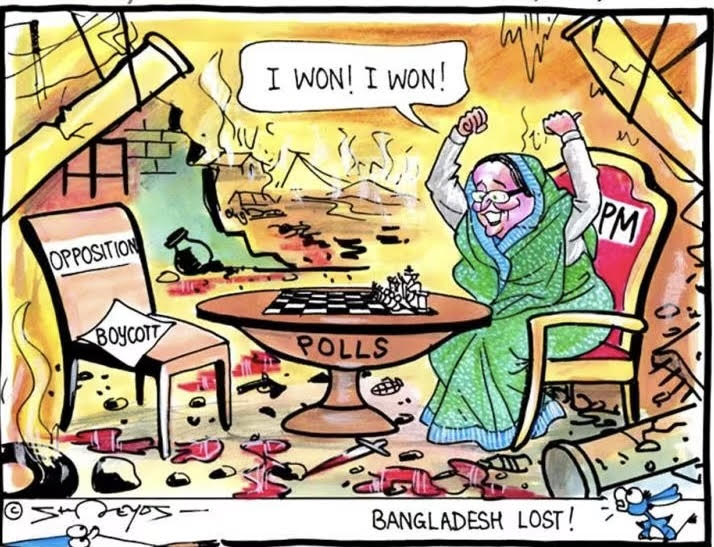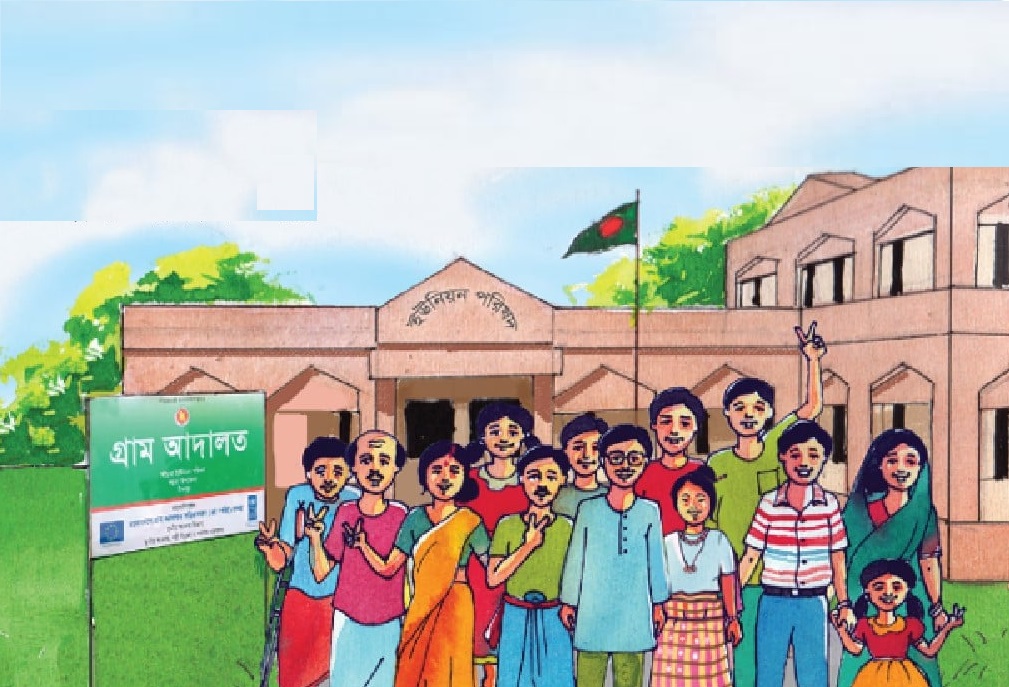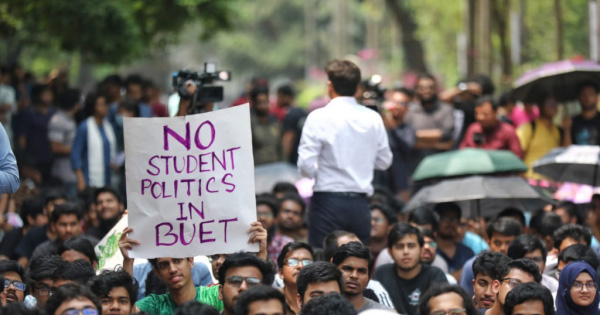Bangladesh Election 2024: The chronicles of a rigged election
The 2024 general election in Bangladesh has sparked significant international debate and garnered mixed reactions from key global players. While some countries have congratulated Hasina on her victory, others have raised significant doubts about the integrity of the electoral process. Moving forward, addressing these concerns and ensuring inclusivity and transparency in future elections will be crucial for upholding democratic principles in Bangladesh. Prime Minister Sheikh Hasina’s dismissal of criticism regarding the legitimacy of the election contrasts sharply with concerns raised by various international actors, including the United States and the United Kingdom.
Hasina’s assertion that the election was “free and fair” stands in stark contrast to the viewpoints expressed by the US and UK, who labeled the election as not meeting the standards of free and fair elections. The State Department of the United States regretted the absence of participation from all parties and highlighted concerns over the election’s credibility. Similarly, the UK expressed concerns over the significant number of arrests of opposition party members and condemned acts of intimidation and violence during the campaign period. While the opposition Bangladesh Nationalist Party (BNP) boycotted the election, citing it as “illegitimate,” Hasina branded them as a “terrorist organization,” exacerbating political tensions in the country. The United Nations called for the rejection of violence and emphasized the importance of respecting human rights and the rule of law.
In contrast to the critical stance taken by Western countries, Prime Minister Narendra Modi of India congratulated Hasina on her victory, praising the “successful conduct” of the polls. Envoys from China and Russia also extended their congratulations, highlighting the deepening ties with Bangladesh during Hasina’s tenure. The election outcome underscores the entrenched rivalry between Hasina and Khaleda Zia, which has long dominated Bangladeshi politics. However, concerns persist over the fairness of the electoral process, with accusations of widespread irregularities and a lack of transparency.
Human Rights Watch highlighted the government’s failure to reassure opposition supporters about the fairness of the polls, fueling fears of a further crackdown on dissent. Opposition activists staged protests in Dhaka, symbolically wearing black gags over their mouths to condemn the election. The international response to the Bangladesh election reflects broader concerns about democratic norms and human rights in the region. The 2024 national elections in Bangladesh represent a pivotal moment in the country’s political landscape, but unfortunately, it seems to herald a pyrrhic victory for the ruling Awami League rather than a triumph for democracy. This commentary will delve into the various facets of the elections as depicted in the article, exploring the erosion of democratic norms, the absence of credible opposition, and the international community’s response.
Bangladesh has a rich history of democratic elections, with a theoretically independent Election Commission and a tradition of an educated electorate. However, recent decades have seen a troubling trend towards authoritarianism, characterized by crackdowns on dissent and a toxic political atmosphere. The conviction of opposition leaders like Khaleda Zia and her son, along with the rejection of demands for a caretaker government to oversee elections, have undermined the credibility of the electoral process. The absence of the Bangladesh Nationalist Party (BNP) from the election further compounds concerns about the legitimacy of the outcome. With one of the major parties boycotting the polls, the ruling Awami League is set to retain power without a genuine electoral mandate, leading to a pyrrhic victory that could have long-term repercussions for Bangladeshi democracy.The concept of a caretaker government, previously utilized to conduct elections with relative fairness, has been discarded, raising questions about the future integrity of the electoral process. The dominance of the Awami League, coupled with heavy-handed tactics such as arrests and intimidation of the opposition, paints a grim picture of electoral authoritarianism.
International observers, traditionally tasked with monitoring foreign elections, have opted not to send monitoring teams, citing concerns about the flawed nature of the process. Instead, efforts are focused on assessing the level of violence and making post-election recommendations to mitigate future conflicts. However, without credible opposition participation and amid a climate of political violence, prospects for meaningful change remain bleak. The role of external actors, particularly the United States, the European Union, India, and China, is crucial in shaping Bangladesh’s political landscape. While the US has criticized the electoral process and imposed visa sanctions on those responsible for disruptions, other influential players like India and China have chosen to support the status quo, prioritizing stability over democratic principles.
In conclusion, Bangladesh’s 2024 national elections underscore the erosion of democratic norms and the consolidation of power by the ruling party at the expense of genuine democratic competition. Unless meaningful reforms are implemented to address the underlying challenges, Bangladesh risks further descent into authoritarianism, with grave implications for its democratic future.







